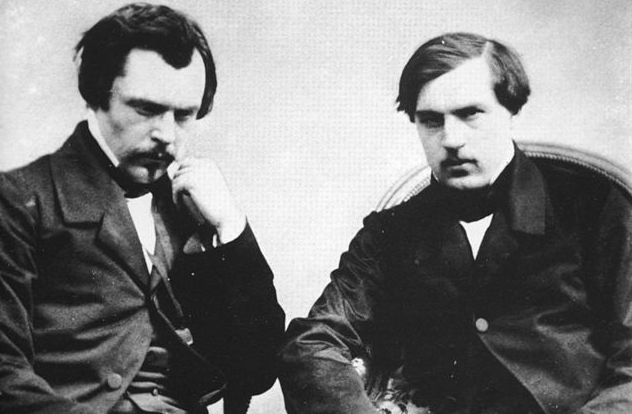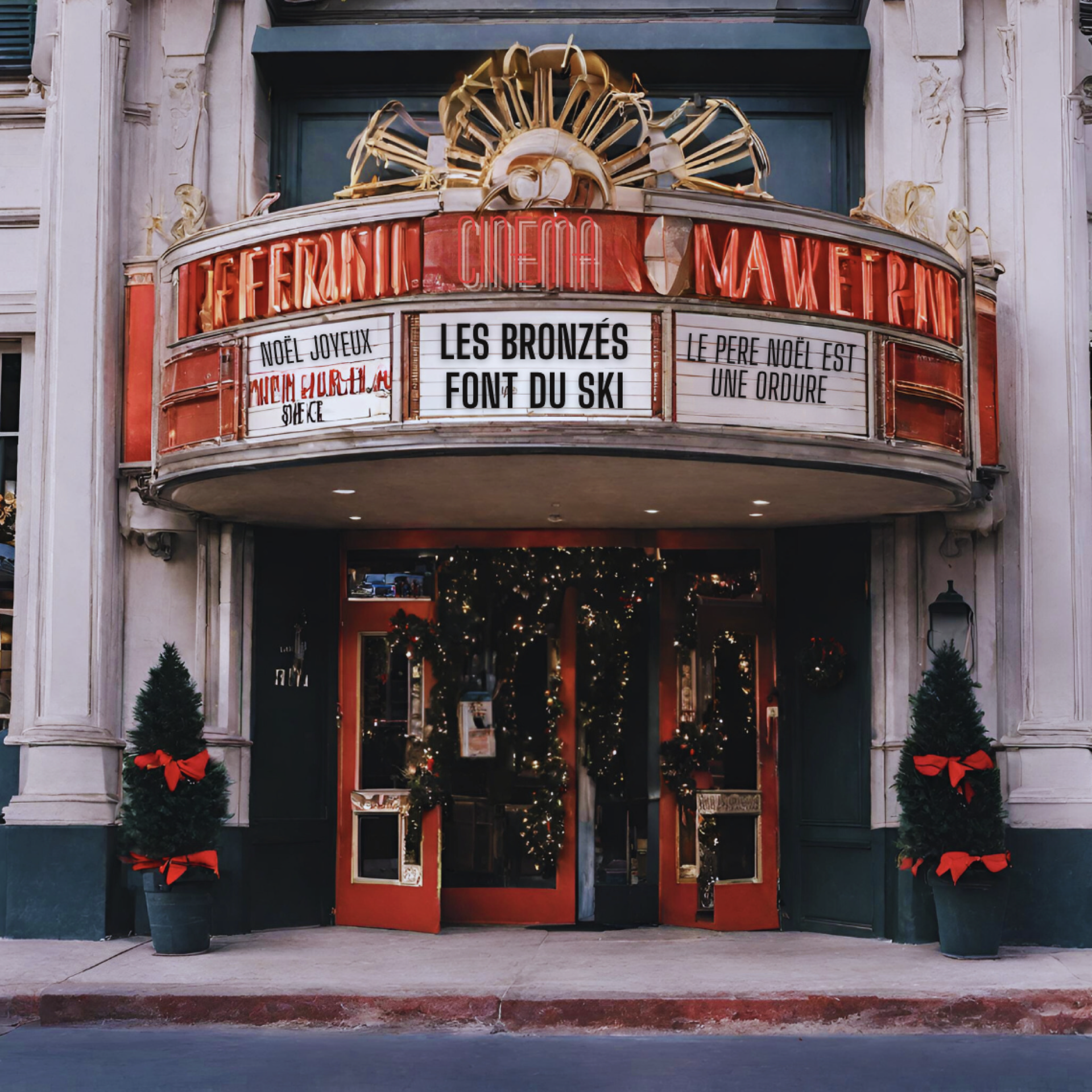Between the end of August and the beginning of October, about 600 novels are released in France. There’s a flurry of excitement in bookshops around the country as readers rush out to buy the most popular new novels–some of which will go on to win prestigious French literary prizes like the Prix Goncourt. This period of the year, known as la rentrée littéraire is the Cannes Film Festival of literature, but many Americans have never heard of it. What makes this literary phenomenon so important and unique? Find out below!
By Sophia Millman
What are the origins of la rentrée littéraire?

You might be familiar with the common French phrase la rentrée (the return, or the equivalent of “back to school”), which refers to the end of summer vacation and the start of the school year. But, interestingly, no one knows exactly where the phrase la rentrée littéraire originated. In 1874, the French author Mallarmé called the fall theater season la rentrée théâtrale, and many French scholars credit Mallarmé for inventing la rentrée littéraire as well. But the term didn’t become popular until the 19th century, thanks in part to the famous frères Goncourt.
In 1903, John Antoine Nau won the first Prix Goncourt (created by the brothers Goncourt featured in the unflattering photo above… Unfortunately, it’s the only picture that exists of them!). From then on, the prize became increasingly prestigious, and other literary academies created similar awards that you can read about below.
In the 1950s, publishers began releasing all of their best new books in the fall, right before the literary prizes were announced. They called this autumnal publishing phenomenon la rentrée littéraire. Today, just as most films that will be nominated for “Best Picture” at the Oscars come out in the fall, most award-winning French novels first appear in bookshops in the fall as well.
Why is la rentrée littéraire a distinctly French tradition?
The French are notorious bibliophiles. Victor Hugo perfectly summed up their passion for reading when he declared: “Lire, c’est boire et manger; l’esprit qui ne lit pas maigrit comme le corps qui ne mange pas.” (Reading is drinking and eating. The mind that does not read is as thin as the body that does not eat.) In the US, nonfiction sells much better than fiction, and American publishers worry that the novel has no future. But in France, “la nation littéraire,” the novel is still extremely popular. This explains why France is the only country (apart from Belgium) that celebrates the release of new novels during a special part of the year.
If you’d like to learn more about France’s love affair with literature while practicing your French, check out some of these classic literary French TV shows:
- Lectures pour tous: This is the first literary French TV show that ran from 1953 to 1968. Watch the show’s presenter Pierre Dumayet interview the famous American novelist James Baldwin here.
- Apostrophes: This literary show ran for fifteen years and, believe it or not, was one of the most watched shows on French television. Each hour-long episode was devoted to one or several authors. Famous writers who appeared on the show include: Vladimir Nabokov, Milan Kundera, Georges Simenon, John Le Carré, Umberto Eco, and Marguerite Duras. Browse a compilation of the show’s most famous moments here.
- Bouillon de culture. Bernard Pivot, the famous host of Apostrophes, created this show in 1991 and it ran for ten years. Many famous writers and actors appeared on it, and Pivot asked all of them questions from the Proust Questionnaire. Watch highlights (some in English, some in French) here.
What are the most important French literary prizes?
The five “grands prix” in France are the Prix Goncourt, the Prix Renaudot, the Prix Femina, the Prix Interallié, and the Prix Médicis. In 1904, a group of women established the Prix Femina to counteract the sexism of the Prix Goncourt, whose jury at the time was made up exclusively of men. Ten literary journalists founded the Prix Renaudot in 1926, and it remains the most prestigious prize after the Goncourt. The Prix Médicis was founded later, in 1958, and it’s awarded to a young author or an author who is relatively unknown.
Another important literary prize is the Prix Goncourt des Lycéens, known as the younger sibling of the Prix Goncourt. Every year, ten judges of the Académie Goncourt nominate twelve works of literature for the prize. Then, about two thousand high school students read the twelve novels, discuss them, and vote on a winner.
In 2022, the Prix Goncourt was awarded to Brigitte Giraud’s Vivre Vite (Live Fast).You can find out more in this article.
Which 2023 French novels should I read?
- L’Épaisseur d’un cheveu by Claire Berest: A gripping novel exploring the darker side of humanity. The perfectly matched Etienne and Vive have been enjoying ten years of marriage when their relationship suddenly unravels. Berest’s story takes you along Etienne’s complicated journey, but wastes no time in telling the reader the destination: he will kill his wife.
Practice your French: Watch Claire Berest discuss her latest novel, her interest in these darker subjects and more in an interview here.
- Le Château des Rentiers by Agnès Desarthe: Over her many years of writing, Desarthe has been awarded numerous literary prizes and was nominated for the Prix Goncourt in 2021. Her latest novel will transport you through generations, blending past and present, by way of her own grandparents’ former apartment on the Rue du Château-des-Rentiers in Paris. This one will be nostalgic and light-hearted, with plenty of humor.
Fun Fact: Agnès Desarthe was made a Chevalier of the Legion of Honor, France’s highest civil and military honor in 2015!
- Dali : avant gala by Julie Birmant: For those who love a good bande-dessinée, try out Birmant’s follow up to her award-winning graphic biography of Pablo Picasso. With the help of the vivid illustrations of Clément Oubrerie, Birmant tells the story of the sensitive, anxious and ingenious Salvador Dalí as he navigates an artistic awakening in the City of Lights.
Some other popular releases of the past few years:
- La treizième heure by Emmanuelle Bayamack-Tam
- Le consentement by Vanessa Springora
- L’anomalie by Hervé Le Tellier
- Les inséparables by Simone de Beauvoir
- Le pays des autres by Leïla Slimani
- Les enfants sont rois de Delphine de Vigan
- Le Ghetto intérieur by Santiago Amigorena
- Le ciel par-dessus le toit by Nathacha Appanah
- Une partie de badminton by Olivier Adam
- La part du fils by Jean-Luc Coatalem
- Le Bal des folles by Victoria Mas
- Avant que j’oublie by Anne Pauly
- La clé USB by Jean-Philippe Toussaint
- Civilizations and HHhH by Laurent Binet
Discover more francophone writers in our blog post here!
If you happen to be a francophile living in NYC, you can stop by Albertine (pictured above), the city’s French bookstore! They keep a stock of recent releases and classics from France and other French-speaking countries, on top of English language novels and translated editions. The interior is gorgeous, and is famous for its hand-painted mural filled with constellations and planets. Not a local? No worries, they offer shipping too!
Will la rentrée littéraire change in the future?
A total of 466 novels (321 French, 145 translated) will appear in French bookstores between mid-August and the end of October this year. According to Livres Hebdo, this rentrée littéraire is the smallest France has seen in the 21st century, and 2023 marks the second consecutive year that the total number of releases falls below 500. Sales during la rentrée littéraire are said to offer a preview of the market in the coming year but book sales during last year’s rentrée littéraire were described as lukewarm.. While this might be disheartening, French publishers argue that releasing fewer novels of higher quality will encourage readers to buy more books.While la rentrée littéraire may be slightly smaller in the future, it’s clear that the tradition will continue thanks to the literary talents that continue to share their craft with readers in France and worldwide.





